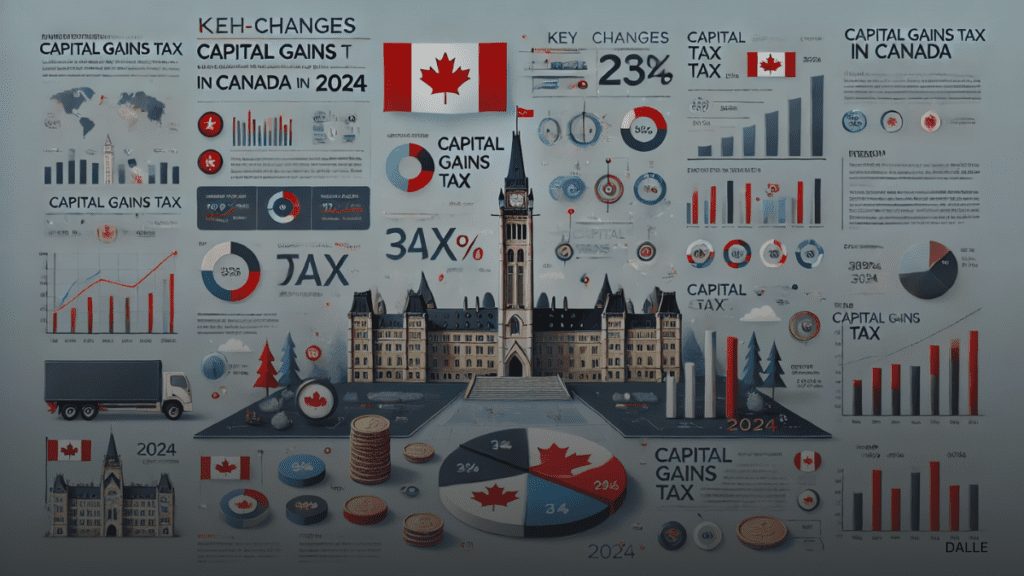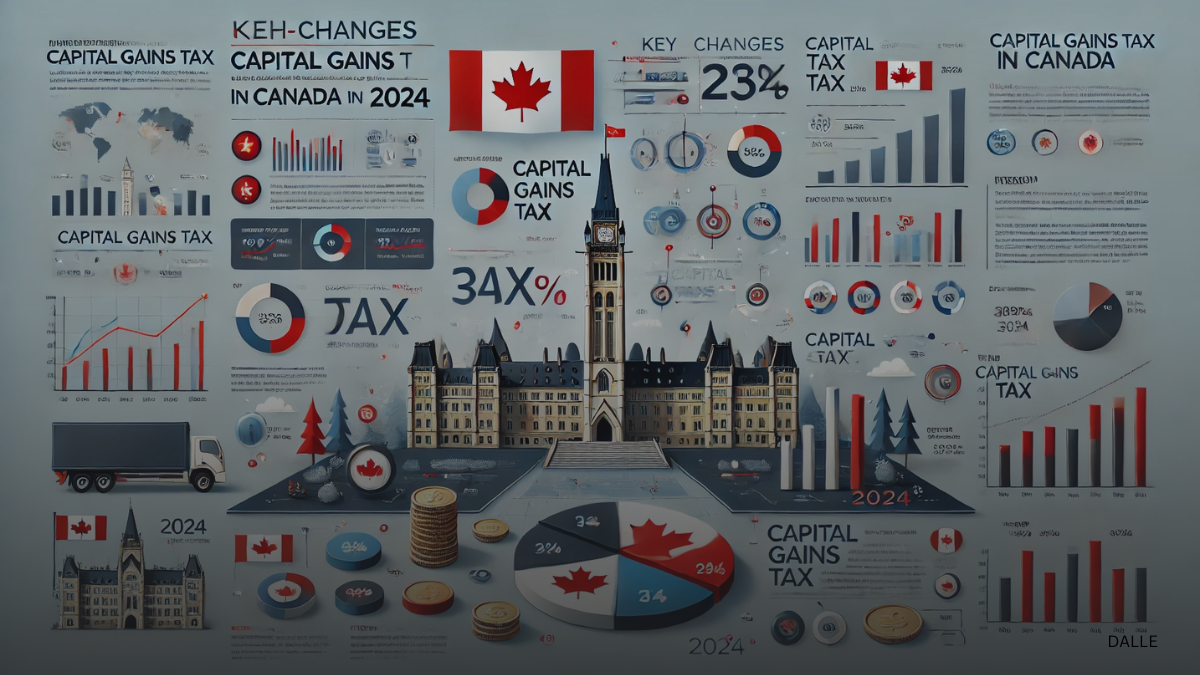Key Takeaway: The 2024 capital gains tax hike will see an increase in the inclusion rate from 50% to 67% for gains over $250,000 per year for individuals. This change aims to improve tax fairness but may impact investment behavior and economic activity. Middle-class Canadians with gains under $250,000 will continue to benefit from the existing rate.

Understanding the Capital Gains Tax Hike 2024
Hustlers, the 2024 budget has introduced significant changes to the capital gains tax that will affect many Canadians. Starting June 25, 2024, the inclusion rate for capital gains above $250,000 will increase from 50% to 67%. This means that more of your profits from selling assets will be subject to taxation. The first $250,000 of gains will still be taxed at the current 50% rate. These changes apply to individuals, corporations, and most types of trusts. For detailed information, visit the Department of Finance Canada and Global News.
Impact on Middle-Class Canadians
For middle-class Canadians, the impact might be less severe. The government has ensured that the first $250,000 of annual capital gains will remain taxed at the current rate, safeguarding small investors and middle-income earners from the harsher effects of this hike.
| Annual Capital Gains | Tax Inclusion Rate |
|---|---|
| Up to $250,000 | 50% |
| Over $250,000 | 67% |
For example, if you realize $300,000 in capital gains in a year, $250,000 will be taxed at 50%, and the remaining $50,000 will be taxed at 67%.
Economic Consequences of the Capital Gains Tax Increase
The increase in the capital gains tax inclusion rate could have broader economic implications:
- Discouraging Investment: Higher taxes on gains might discourage investments in stocks, real estate, and other assets, potentially leading to lower overall economic activity.
- Impact on Economic Activity: With reduced investment, there might be a slowdown in economic growth, affecting job creation and overall economic dynamism.
| Potential Impact | Description |
|---|---|
| Investment Levels | Decreased investment due to higher taxes on returns. |
| Economic Growth | Potential slowdown in growth and job creation. |
Potential Misalignment with Revenue Projections
The government projects increased revenue from this tax hike, but there is a risk of falling short if investors adjust their behaviors to minimize taxable gains. This potential misalignment could impact funding for various public services. For more information, visit Ratehub.ca.
Broader Implications for Healthcare and Other Sectors
Funds from the increased capital gains tax are earmarked for essential services, including healthcare. However, if the anticipated revenue does not materialize, there might be budget shortfalls affecting these sectors.
Frequently Asked Questions (FAQs)
What is the new inclusion rate for capital gains?
The inclusion rate will increase from 50% to 67% for gains above $250,000 annually.
When do these changes take effect?
The changes take effect on June 25, 2024.
How will this affect small investors?
Small investors with annual gains under $250,000 will not see a change in their tax rate.
Are primary residences affected?
No, gains from selling a primary residence remain exempt from capital gains tax. For details, visit the Government of Canada website.
What are the economic implications?
The hike could discourage investment and slow economic growth.
Will this impact government revenue?
There is a risk that the projected revenue increase may not meet expectations if investment behaviours change.
Where can I find more detailed information?
Official resources like Canada.ca provide comprehensive details on these tax changes.
For further details and updates, you can visit the official government site on Canada.ca.
By staying informed and planning accordingly, you can navigate these changes effectively. Stay tuned to HustleHub for more updates and insights on how to manage your investments in light of these new regulations.









